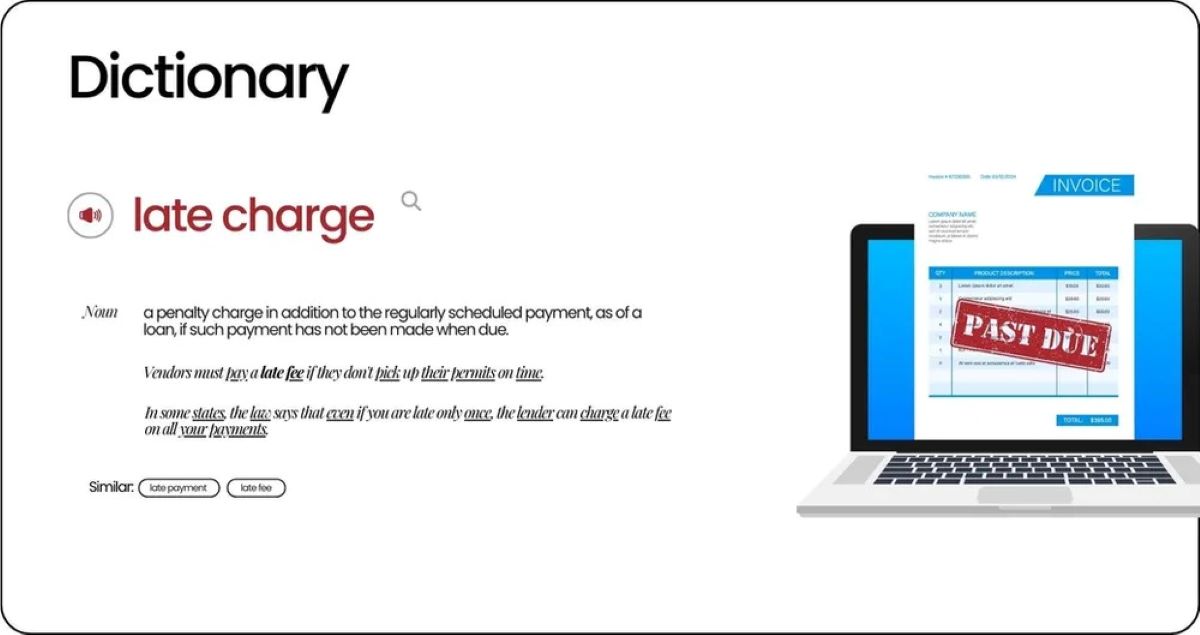Home>Finance>How Many Years In Corporate Finance Before MBA?


Finance
How Many Years In Corporate Finance Before MBA?
Published: December 21, 2023
Find out how many years of experience you should have in corporate finance before pursuing an MBA. Gain insights and make informed decisions about your finance career path.
(Many of the links in this article redirect to a specific reviewed product. Your purchase of these products through affiliate links helps to generate commission for LiveWell, at no extra cost. Learn more)
Table of Contents
Introduction
Corporate finance refers to the area of finance that deals with the financial decisions made by corporations and the strategies they employ to maximize shareholder value. It encompasses various activities such as financial planning, risk management, investment analysis, and capital allocation. Many professionals who are passionate about finance aspire to pursue a Master of Business Administration (MBA) with a specialization in corporate finance to enhance their skills and advance their careers.
One common question that often arises is how many years of corporate finance experience one should have before pursuing an MBA in this field. While there is no definitive answer to this question, there are certain considerations and benefits associated with gaining experience in corporate finance before embarking on an MBA program.
In this article, we will explore the benefits of acquiring corporate finance experience before pursuing an MBA, factors to consider before choosing this path, recommended years of experience, and the availability of bridge programs for transitioning into corporate finance.
By understanding these aspects, aspiring finance professionals can make informed decisions about their career paths and determine the best approach to reach their goals.
Benefits of Corporate Finance Experience Before MBA
Having practical experience in corporate finance before pursuing an MBA can provide numerous advantages for individuals looking to specialize in this field. Here are some key benefits:
-
Practical Application of Concepts: Corporate finance is a complex discipline that requires a strong understanding of financial principles. By gaining hands-on experience in the field, individuals can apply theoretical knowledge to real-world scenarios, enhancing their understanding and problem-solving abilities.
-
Networking Opportunities: Working in the corporate finance industry allows professionals to build a strong network of contacts, including colleagues, clients, and industry experts. These connections can be invaluable when pursuing an MBA, as they can offer insights, recommendations, and even potential job opportunities after graduation.
-
Industry Insights: Through practical experience, individuals gain a deep understanding of the corporate finance industry, including its trends, challenges, and best practices. This knowledge can be invaluable when pursuing an MBA, as it provides a solid foundation for further learning and specialization.
-
Enhanced Analytical and Problem-Solving Skills: Corporate finance professionals are often tasked with analyzing financial data, identifying trends, and making strategic decisions. By honing their analytical and problem-solving skills in a real-world setting, individuals can bring a valuable perspective to their MBA studies, enriching their learning experience.
-
Improved Leadership Abilities: Corporate finance roles often involve managing teams and making critical decisions that impact the financial health of the organization. By gaining experience in these leadership positions, individuals develop essential skills such as communication, teamwork, and decision-making, which are highly valued in MBA programs and future management roles.
-
Opportunity for Career Advancement: Corporate finance experience can open doors to higher-level positions and increased responsibilities. By demonstrating proficiency in the field, individuals can position themselves for promotions, salary increases, and better job prospects. This not only adds value to their professional profile but also enhances their MBA application.
Overall, the practical experience gained in corporate finance before pursuing an MBA can provide a solid foundation for further learning, personal growth, and career advancement. It allows individuals to apply theoretical knowledge to real-world scenarios, develop valuable skills, and make connections that can support their professional journey.
Factors to Consider Before Pursuing an MBA in Corporate Finance
Before deciding to pursue an MBA in corporate finance, it is essential to consider several factors that can influence your decision-making process. These factors include:
-
Career Goals: Clarify your career goals and how an MBA in corporate finance aligns with them. Determine if an advanced degree is necessary to achieve your desired position or if experience alone can suffice.
-
Financial Considerations: Evaluate the financial implications of pursuing an MBA, including tuition costs, potential student loans, and the return on investment. Consider whether the increased earning potential and career opportunities justify the financial commitment.
-
Time Commitment: Understand the time commitment required for an MBA program and how it may affect your personal and professional life. Consider if you are willing and able to dedicate the necessary time to complete the program successfully.
-
Work Experience: Assess your current level of work experience in corporate finance. Evaluate if you have sufficient practical knowledge and skills or if gaining more experience would be beneficial before pursuing an MBA.
-
MBA Specialization: Research the various specializations available within the field of corporate finance. Determine if there is a specific area of interest that you would like to focus on during your MBA studies.
-
Network and Alumni Connections: Look into the reputation and strength of the MBA program’s alumni network. Consider the potential networking opportunities and industry connections that can benefit your career in corporate finance.
-
Program Curriculum: Evaluate the curriculum of the MBA program you are considering. Ensure that it covers the necessary subjects and offers courses that align with your career goals in corporate finance.
By carefully considering these factors, you can make an informed decision about pursuing an MBA in corporate finance. Assessing your career goals, financial situation, and personal commitments will help you determine if the timing and investment are right for you. Additionally, considering factors such as work experience, specialization options, networking opportunities, and program curriculum will further enhance your decision-making process and set you up for success in your chosen field.
Recommended Years of Experience in Corporate Finance Before MBA
The recommended years of experience in corporate finance before pursuing an MBA can vary depending on individual circumstances and career goals. However, a general guideline is to have a minimum of two to five years of relevant work experience in the field.
Having a few years of practical experience in corporate finance can provide a solid foundation and a deeper understanding of the industry, which can greatly benefit MBA studies. It allows individuals to relate the theoretical concepts learned in the classroom to real-world scenarios, making the learning experience more meaningful and impactful.
By gaining industry experience before pursuing an MBA, individuals can also bring valuable insights and perspectives to classroom discussions and group projects. They can share their experiences, contribute to problem-solving, and engage in meaningful discussions with fellow classmates and professors, enriching the learning environment for everyone.
Furthermore, having prior experience in corporate finance can enhance one’s chances of landing internships or job placements during and after the MBA program. Employers often value candidates who have a combination of advanced education and practical experience, making them more competitive in the job market.
It is important to note that while a few years of experience in corporate finance is recommended, the quality and depth of that experience also matter. It is not solely about the number of years but the level of responsibilities and the skills acquired during that time. Candidates with a track record of significant accomplishments and progressive growth in their roles are likely to have a stronger profile for MBA admissions.
Additionally, individuals should consider their long-term career goals when determining how much experience they need before pursuing an MBA. Some individuals may be looking to transition into a leadership role or specialized area within corporate finance, and additional years of experience may be necessary to gain the required expertise.
Ultimately, the recommended years of experience in corporate finance before pursuing an MBA can vary, and it is important to assess individual circumstances, career aspirations, and personal goals. By striking a balance between gaining practical experience and furthering education, individuals can position themselves for success in the field of corporate finance.
Bridge Programs for Transitioning into Corporate Finance
For individuals looking to transition into a career in corporate finance but lacking the required experience or educational background, bridge programs can serve as a valuable pathway. These programs are designed to provide the necessary knowledge and skills to bridge the gap between an existing background and the requirements of a career in corporate finance.
Bridge programs offer specialized courses or certifications that focus on the fundamentals of finance, accounting, financial analysis, and other relevant topics. They are often offered by universities, professional organizations, and online learning platforms, making them accessible to a wide range of individuals.
One popular bridge program for aspiring corporate finance professionals is the Certificate in Finance. This program typically covers key areas such as financial management, valuation, financial statement analysis, and investment principles. Completing a finance certificate can demonstrate a commitment to learning and add credibility to one’s qualifications, making it a valuable asset when seeking job opportunities or pursuing further education.
Another option is to consider pursuing additional education in the form of a postgraduate diploma or a master’s degree in finance. These programs are specifically designed for individuals who want to switch careers and enter the world of corporate finance. They provide a comprehensive curriculum that covers essential finance topics and allows individuals to gain a deep understanding of the field.
Online learning platforms can also be a great resource for individuals looking to acquire the necessary knowledge and skills to transition into corporate finance. Platforms such as Coursera, edX, and Udemy offer a wide range of finance courses that cover various aspects of corporate finance. These courses provide flexibility and can be completed at one’s own pace, making them suitable for individuals who are working or have other commitments.
Additionally, networking and connecting with professionals already established in the corporate finance industry can provide valuable insights and potential opportunities. Attending industry events, joining finance-focused professional organizations, and seeking mentorship from experienced professionals can provide guidance and connections that can aid in the transition process.
It is important to note that while bridge programs can be beneficial, they should be seen as a supplement to the required foundational knowledge and experience. Building a strong foundation in finance through education and gaining practical experience is crucial for success in corporate finance.
Overall, bridge programs offer a viable option for individuals seeking to transition into corporate finance. By acquiring the necessary knowledge and skills through specialized courses, certifications, or additional education, individuals can enhance their qualifications and increase their chances of success in the field.
Conclusion
Pursuing an MBA in corporate finance can be a significant step towards advancing your career in the finance industry. While the number of years of corporate finance experience before pursuing an MBA can vary, having practical experience in the field can bring numerous benefits, including the practical application of concepts, networking opportunities, industry insights, enhanced analytical and problem-solving skills, improved leadership abilities, and increased career advancement opportunities.
Before deciding to pursue an MBA in corporate finance, it is important to consider several factors. These factors include your career goals, financial considerations, time commitment, current work experience, desired MBA specialization, network and alumni connections, and program curriculum. By carefully considering these factors, you can make an informed decision about whether pursuing an MBA in corporate finance is the right path for you.
Additionally, bridge programs offer valuable opportunities for individuals looking to transition into a career in corporate finance. These programs provide specialized courses or certifications that focus on the fundamentals of finance and can help bridge the gap between existing background knowledge and the requirements of a career in corporate finance. Online learning platforms and networking with professionals in the field can also contribute to the transition process.
In conclusion, gaining practical experience in corporate finance before pursuing an MBA, considering relevant factors, and exploring bridge programs can greatly enhance your preparation and success in the field of corporate finance. By strategically planning your career path and continuously investing in your knowledge and skills, you can position yourself for a rewarding and fulfilling career in corporate finance.














